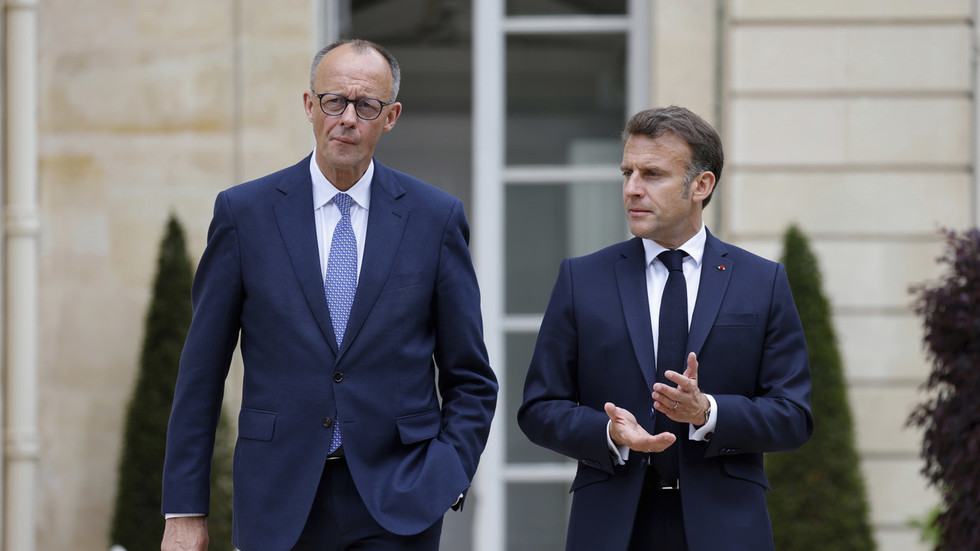Romania is gripped by a deep political crisis after a top court voided the previous election in which the far-right outsider Calin Georgescu topped the first round, following allegations of electoral violations and Russian interference, which Moscow has denied. Deep societal divisions have been exposed during Romania’s chaotic election cycle.

After coming fourth in last year’s cancelled race, George Simion, the 38-year-old leader of the Alliance for the Unity of Romanians (AUR), backed by Georgescu who was banned in March from standing, is leading the race. Simion surged to become the front-runner in the May 4 vote after becoming the standard-bearer for the hard right.
Read moreNationalist George Simion wins Romania’s first round with help from TikTok, rural voters and Trump
System vs antisystem?
Years of endemic corruption and growing anger toward Romania’s political establishment has fuelled a surge in support for nationalist figures, reflecting a broader pattern seen across Europe. The AUR party says it stand for “family, nation, faith, and freedom" and rose to prominence in a 2020 parliamentary election. It has since grown to become the second-largest party in the Romanian legislature.
To his critics, Simion is a pro-Russian extremist who threatens Romania’s longstanding alliances in the European Union and NATO. But in an AP interview last week, he rejected the accusations, saying Russia is his country's biggest threat, and that he wants Romania to be treated as “equal partners” in Brussels.
Brussels vs Moscow?
His challenger, Bucharest Mayor Nicusor Dan, has a very diffrent profile. The 55-year-old mathematician rose to prominence as a civic activist fighting against illegal real estate projects. Dan founded the reformist Save Romania Union party in 2016 but later left it, and is now running independently on a pro-EU ticket, reaffirming Western ties, support for Ukraine, and fiscal reform.
Watch moreRomania carries out NATO drills in Black Sea region
At a rally in Bucharest, he also addressed the growing tensions. “How did it come to this – that in a country with hardworking, decent people, there is so much hatred and division, that families and circles of friends are torn apart over political opinions?” he said. “We need to project hope.”
Simion, also a former activist who campaigned for reunification with neighbouring Moldova, says he would focus on reforms, slashing red tape and reducing bureaucracy and taxes. But he insists that his main goal is to restore democracy. “My platform is to return to democracy, to the will of the people,” he said.
Read moreGeorge Simion, the hard-right nationalist who wants to make Romania great again
Dan, who pledged to clamp down on corruption, is staunchly pro-EU and NATO, and has said Romania's support for Ukraine is vital for its own security against a growing Russian threat.
Is the French government taking a stand?
The vote is expected to be a tight battle that will be closely watched by Brussels and other European capitals, as well as Moscow and Washington. French President Emmanuel Macron on Friday warned that a victory for hard-right, Eurosceptic Simion in Romania would have negative consequences for neighbouring Moldova.
"If the pro-Russian and anti-European candidate ... could be elected, the consequences for Moldova would of course be extremely damaging," Macron told reporters at a meeting of European leaders in Albania. He did not elaborate.
Read moreRomania's top court annuls presidential vote amid Russia interference fears
Simion, on a visit to Paris on Friday, accused Macron of interference in his country's tense presidential election rerun. Romania's far right has previously accused Paris and Brussels of being behind the annulment, which Simion has called a "coup d'etat".
"My message is very clear: 'Back off!' It is not your job... to get involved with the free sovereign will of the Romanian people," Simion said at a press conference in Paris flanked by French far-right MEP Marion Maréchal-Le Pen.
"You are not an emperor, you are not loved even by the French people, so these attacks... are not what we should do in a united Europe, in the future European Union," he said.
(With AP, Reuters and AFP)











 English (US) ·
English (US) ·